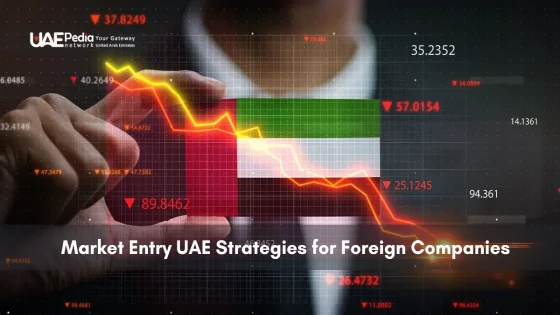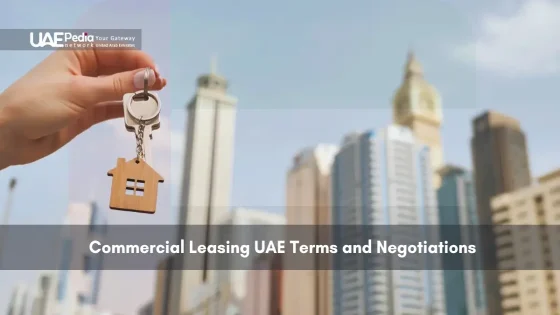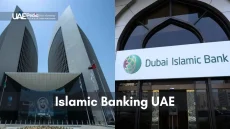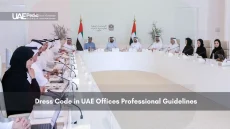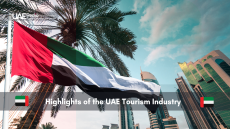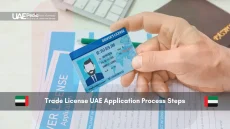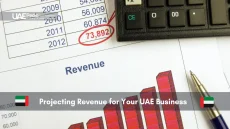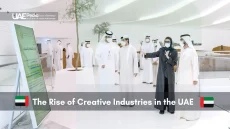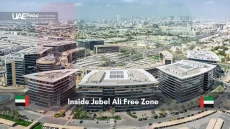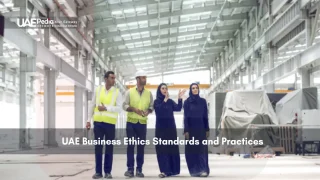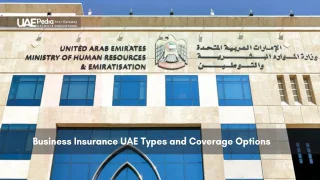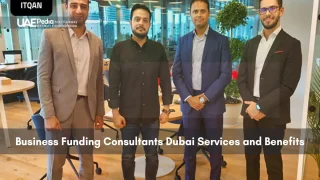What if one of the world’s most dynamic economies could become your next growth frontier? With over 90% of its population comprised of expatriates, the Emirates thrives on global collaboration—and it’s reshaping how businesses connect across continents.
This region isn’t just about glittering skylines; it’s a mosaic of innovation. From tech hubs in Dubai to sustainable energy projects in Abu Dhabi, opportunities here blend ambition with infrastructure. But to thrive, you’ll need more than enthusiasm—you’ll need a smart approach tailored to local rhythms.
Think trade events buzzing with deals, partnerships with trusted distributors, or Over 40 free zones offering 100% foreign ownership and streamlined setups. Each path has its own tempo. U.S. firms have mastered this dance for decades, proving that cultural insight matters as much as strategy. Want to join them? Start by exploring strategies for entering the UAE market that align with your goals.
Here’s what we’ll unpack:
- Why this crossroads of East and West rewards adaptable businesses
- How to choose between free zones, local alliances, or acquisitions
- Real-world lessons from companies that turned challenges into wins
Navigating the UAE’s Dynamic Market Landscape
Think of the Emirates as a living blueprint—where Bedouin hospitality shakes hands with blockchain startups. Seven distinct emirates form this federation, each adding its own spice to the economic stew. Abu Dhabi’s oil wealth fuels mega-projects, while Dubai’s “build it bolder” ethos attracts tech giants. But beneath the glitz? A cultural fabric woven through centuries of pearl diving and desert trade.
Balancing Heritage and Innovation in the UAE Economy
The United Arab Emirates achieved a 4% GDP growth in 2024, with non-oil sectors contributing 75.5% of the total GDP—faster than most G20 nations. Non-oil sectors now drive 72% of this growth, from renewable energy to fintech. Yet success here isn’t just about spreadsheets. Did you know:
| Indicator | 2023 Data | Regional Rank |
|---|---|---|
| GDP Growth | 7.9% | 1st in GCC |
| FDI Inflow | 30.7 billion in 2023 | 2nd in Middle East |
| Non-Oil Trade | $817 billion in 2024″ | Top 10 Global |
| Infrastructure Spend | Infrastructure Projects in Execution: $177 billion | 1st in Arab Emirates |
Building trust matters as much as capital here. A regional trade hub for centuries, the Emirates values wasta (influence through relationships). Deals often start over cardamom coffee, not Zoom calls.
Impact of Regional Partnerships on UAE Business Expansion
GCC countries now align 78% of their trade regulations, facilitating cross-border business operations—a boon for businesses scaling across borders. But watch for nuances. Dubai’s 24/7 business tempo contrasts with Sharjah’s cultural conservatism. One tip? Treat each emirate as its own market with shared values.
Entering the UAE means dancing between global protocols and local customs. Like that time a European retailer swapped mannequins’ sleeveless outfits for modest designs—sales jumped 40%. Here, respect opens doors data alone can’t.
While the GCC has made strides in economic integration, including the establishment of a Free Trade Area in 1983, a Customs Union in 2003, and a Common Market in 2008, full harmonization of trade regulations remains a work in progress. Businesses should be aware of potential regulatory discrepancies when operating across different GCC countries. Ref.: “Mineral policy in the Gulf Cooperation Council (GCC) countries: The future of the industry. ScienceDirect.” [!]
Proven Strategies for Entering the UAE Market
Picture this: a bustling expo hall where tomorrow’s business partnerships take root today. The Emirates’ trade ecosystem thrives on face-to-face connections and trusted alliances—tools that turn ambitious visions into concrete deals. Let’s explore two proven paths to gain traction here.
“read more: Business Financing UAE Options and Requirements“
Maximizing Trade Events and Networking in the UAE
ADIPEC’s energy innovators and GITEX’s tech wizards prove one truth: Emirates’ expos are where industries collide. These events draw 150,000+ visitors annually, offering:
- Direct access to decision-makers from Riyadh to Mumbai
- Real-time feedback on product-market fit
- Insights into emerging sectors like AI-driven logistics
The U.S. Commercial Service often backs American firms at these gatherings—smart strategy for testing regional appetite. Last year, a Texas solar company landed three distributor contracts after demoing at Dubai’s Solar Show. As one CEO quipped: “One coffee break here equals six months of emails.”
| Event | Industry Focus | Key Opportunity |
|---|---|---|
| ADIPEC | Energy | Connect with Gulf’s $32B clean energy projects |
| GITEX | Tech | Showcase AI solutions to 4,500+ exhibitors |
| Dubai Airshow | Aerospace | Network with Middle East’s $765B aviation market |
Partnering with Local Distributors and Agents
Finding the right local partner is like discovering a shortcut through Dubai’s dunes. Proven distributors know how to:
- Navigate customs clearance quirks
- Adapt packaging to climate demands
- Align with halal certification requirements
Due diligence matters—40% of cross-border hiccups stem from mismatched expectations. Vet potential partners through:
- Chamber of Commerce referrals
- Client testimonials (ask for Gulf-specific cases)
- On-ground audits of warehousing capabilities
A European cosmetics brand doubled its GCC sales by teaming with a Dubai-based agent who streamlined compliance across seven markets. Their secret? Monthly strategy syncs that blend global KPIs with local consumer trends.
Strategic Planning for Legal, Operational, and Cultural Integration
Navigating the Emirates’ business terrain demands more than a compass—it requires a blueprint that harmonizes paperwork with cultural pulse points. Let’s explore how to align your ambitions with local realities.
“read more: Business Funding Consultants Dubai Services and Benefits“
Understanding Licensing and Logistics in the UAE
Free zones aren’t just tax havens—they’re innovation incubators. With 45+ specialized hubs offering 100% foreign ownership, these areas slash red tape like a khanjar through sand. Key factors to weigh:
- Industry-specific zones (Dubai Media City vs. Abu Dhabi Global Market)
- Renewal costs and visa quotas tied to office space
- Proximity to ports—critical for trade-focused ventures
“Selecting the appropriate free zone is crucial, as each offers unique advantages tailored to specific industries,” notes a Dubai licensing advisor. “The right location fuels growth; the wrong one leaves you circling dunes.” Recent deregulation means Some business licenses can now be issued within 15 minutes, while others may take up to four weeks.
Choosing the appropriate free zone is crucial for business success in the UAE. With over 40 specialized free zones offering benefits like 100% foreign ownership and tax exemptions, aligning your business with a zone that matches your industry can significantly enhance operational efficiency. Ref.: “Free Zones | Ministry of Economy – UAE.” [!]
Adaptive Business Models in the UAE Market
Business strategies should remain adaptable to accommodate regional market fluctuations. One European e-commerce firm adjusted its strategy quarterly after tracking Ramadan sales spikes—resulting in 200% holiday revenue jumps. Three steps to build resilience:
- Map regional preferences (Sharjah’s family-centric buyers vs. Dubai’s luxury seekers)
- Partner with local research firms fluent in Gulf consumer psychology
- Weave Emirati wasta networks into your supply chain
Services like on-demand halal certification consultants and Arabic-language compliance apps now simplify cultural navigation. As infrastructure spend hits $32 billion, smart strategies turn challenges into tailwinds.
“Read also: Business Funding Dubai Sources for Startups“
Strategic Roadmap for Success in the UAE Market
Imagine crafting a blueprint where desert wisdom meets global ambition—this is where your journey begins. The Emirates rewards those who blend preparation with cultural agility. Success here isn’t a sprint; it’s a carefully paced caravan ride across shifting sands.
Read More:
A cohesive team becomes your compass. Whether evaluating products for regional appeal or choosing an office near ports, every decision gains clarity through local insights. Remember: adapting packaging for desert climates or adjusting launch timelines around Ramadan can make all the difference.
Free zones remain game-changers, offering 100% ownership and streamlined logistics. With UAE retail market projected to reach $219 billion by 2032, positioning your operations in specialized hubs could unlock rapid scaling. But even the best infrastructure needs human touch—building trust through customs like sharing dates during meetings seals deals faster than contracts.
This country thrives on partnerships that respect its heritage while chasing innovation. Begin with pilot projects or limited market entries to gauge consumer response before scaling operations, then expand using step-by-step research. With the right strategy and a team fluent in both spreadsheets and Emirati etiquette, your story here is just beginning.
Cultural awareness separates thriving businesses from those that stumble. Understanding concepts like wasta (relationship influence), Ramadan working hours, and the importance of face-to-face meetings in majlis settings builds trust. For example, a handshake deal might hold more weight than a contract draft during early negotiations.
Renewable energy, AI-driven logistics, and health tech are booming—Abu Dhabi’s Masdar City and Dubai’s DP World initiatives offer clear signals. Traditional sectors like luxury tourism (think Ain Dubai partnerships) and halal food manufacturing also show steady demand, especially targeting GCC neighbors.
Mainland commercial licenses often require a UAE national to hold 51% ownership, though free zones like DMCC or RAKEZ allow 100% foreign ownership. Distributors can bypass this but research their networks thoroughly—we’ve seen brands succeed faster with agents who have zakat-compliant supply chains.
Free zones offer tax exemptions, full profit repatriation, and streamlined setup (sometimes in 72 hours!). Mainland licenses let you operate directly across all seven emirates but involve more steps. Many startups begin in free zones like Sharjah’s SAIF Zone before expanding mainland with local sponsors.
These mega-events act as launchpads—Siemens and Microsoft often unveil regional partnerships here. Attend with a clear goal: secure meetings through the Dubai Chamber’s Business Connect app, and factor in that hotel rates triple during these periods. Pro tip: Visit during Dubai Shopping Festival for combo market-testing trips.
Underestimating Emiratisation quotas for hiring, skipping Arabic translations for marketing materials, and ignoring Friday-Saturday weekends. One European retailer lost months by not realizing their product name had unintended slang meanings in Gulf dialects—always conduct linguistic audits!
While English dominates in Dubai’s business hubs, Arabic builds rapport in government dealings and Sharjah/Ajman markets. Train your team on basic phrases and etiquette—a simple shukran (thank you) or inshallah (God willing) can smooth negotiations. Bilingual contracts are mandatory in some emirates.
Beyond licensing help, they offer Exporters Gate programs connecting you to 50+ markets, and industry-specific councils (e.g., Dubai Gold & Jewellery Group). Their AI-powered Commercial Compliance portal decodes regulations—like recent ESG reporting mandates—saving months of legal back-and-forth.
Free zones can fast-track registrations in 3-5 days, while mainland setups with PRO services take 2-4 weeks. Delays often come from document attestation—your marriage certificate might need four stamps if sponsoring a spouse. Use platforms like DED’s Instant service for real-time tracking.
Absolutely! Pop-up stores in Dubai Mall’s Vox Cinemas area, short-term free zone desks (some offer 6-month flexi-desks), or e-commerce via Amazon.ae/Souq let you gauge demand. Just note: customs duties apply even for samples if they’re not part of exhibition allowances.
